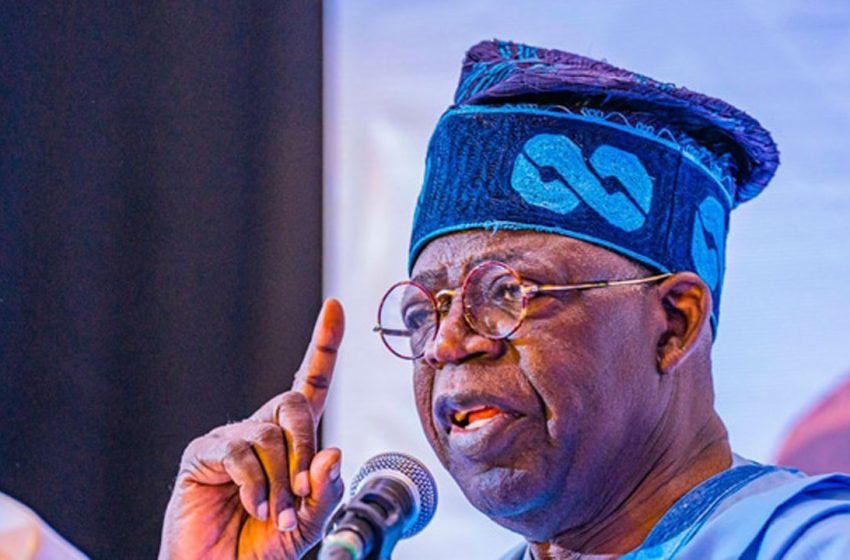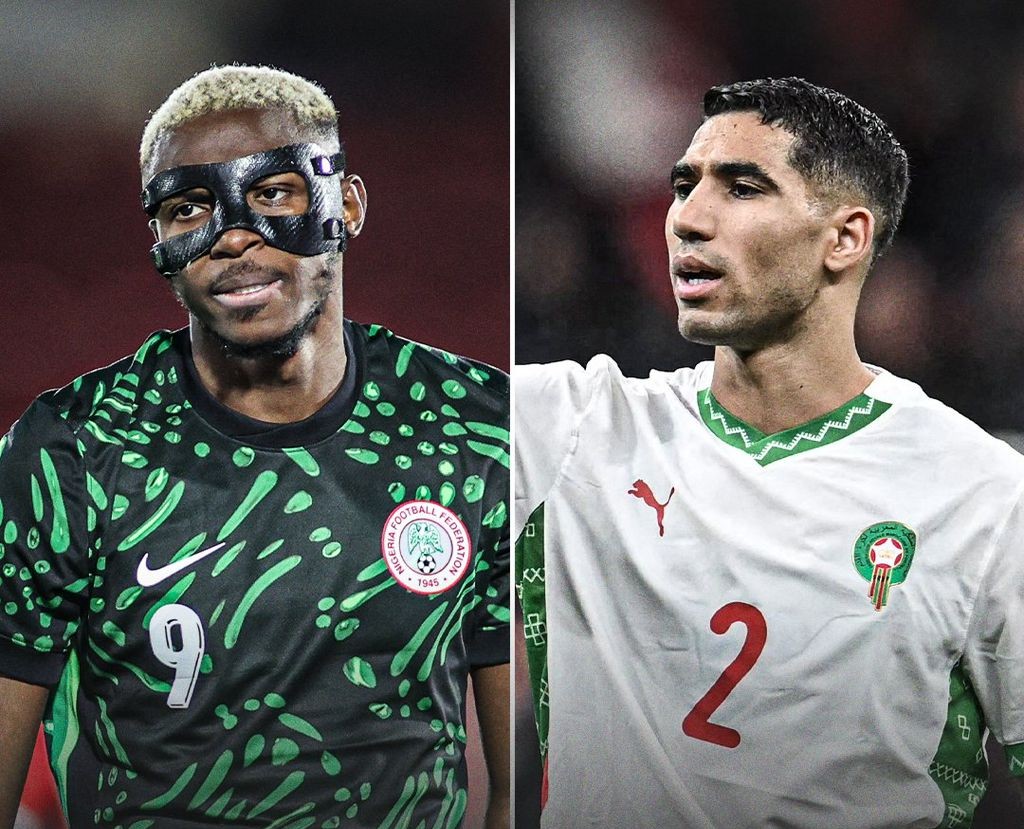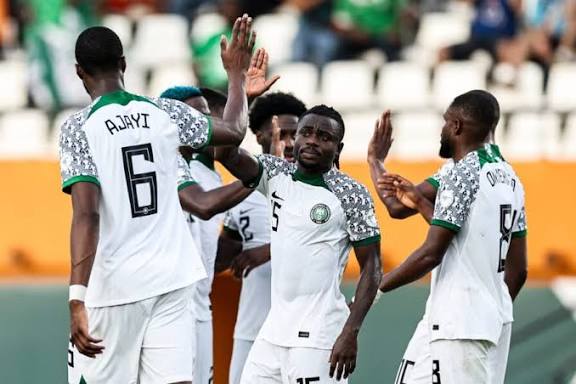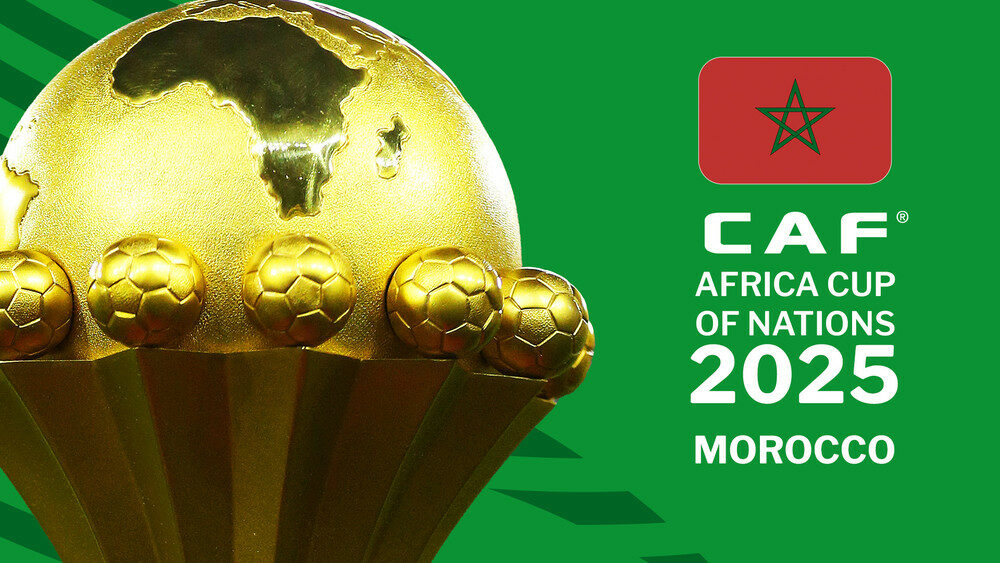CrispNG Parliament: Is Tinubu on right track as Nigeria’s president?

Nigerian Presidency hits back at IMF over economic warning, urges patience with Tinubu’s reforms
Bola Tinubu was recently inaugurated as Nigeria’s president. With almost two weeks in office, CrispNG samples the opinions of Nigerians about his administration so far.
Crispng: On May 29, Tinubu was inaugurated as president. Since then, we have had subsidy removal, planned strikes, and inflation of prices — what is your assessment of his administration so far?
Okuneye Tosin
His first week in office has been chaotic. It’s not looking like the signs of a good government which was what most people expected. Talking of subsidy removal, on paper, it might be the best way to go, but then the responsibility of any government is to take care of the citizens, to make life easy for your citizens either through the short-term or the long-term goals and now it’s not looking like it. Everyone is saying that in the long term, the subsidy removal might be good. Although the removal was not his doing, it was already stated that it was going to be removed at a particular time, he just announced it, but how he did it has led to this hardship. There’s this picture of his wife sitting through a meeting that she wasn’t meant to sit through, or the appointment of Gbajabiamila as the chief-of-staff, so many controversies, so many red flags for just the first week in office. In my opinion, there were no signs of anything good in the first week.
Francis Blessing:
I expected the person who announced to us that he was going to remove the fuel subsidy no matter what to have done his assignment well, and if he truly loves Nigerians as he claims, he should have thought that this decision should not be taken early without any prior plan. In the first week, we have experienced something very close to a regime, his first speech shows that he’s ready to work, but the experience in the first week has shown that he might not have the plans needed to back up his actions because this is not what those who voted for him were expecting, they were expecting something like a good life right after his emergence and we who were against him knows that that’s not going to happen, and if this thing goes on like it’s this, I don’t think that it is good.
Regarding the Gbajabiamila issue, I expect our politicians to know that they paid our fees to enable us acquire knowledge from school, but they are not making it look like they were the ones who brought about education. We were taught in government that there must be a division between the three arms of government; the executive, legislative and judiciary. Femi Gbajabiamila has not left his office as the Speaker of the House of Representatives and he has already been appointed the next Chief-of-Staff, whether he has assumed the office or not, this man is in the legislative and executive.
If anyone should ask right now the Speaker of the House of Representatives, is the chief of staff of Nigeria. So, right now we are mixing the division in the arm of government and if you talk about lawlessness, this is where lawlessness is defined, and this is the best example of it. Moreover, these appointments are also looking like a one-sided game, because in the past three to four appointments we have all seen Yorubas, if this anyone comes out to say that this man has been ethnically biased then that person is saying the truth, we look forward to what is going to come in coming weeks, but the first one week has been bad.
James Ojo
For me, it’s a mixed reaction. When we have a new administration in power, there’s this kind of joy of atmosphere that we expect across the country. The man doesn’t have the people’s goodwill, which he needs to correct, the way he started shows that he isn’t ready to correct that or attract the goodwill of the people, because he hasn’t been engaging the people as he should.
He can’t just say ‘subsidy gone’, he should have taken a gradual step to at least get the people on his side before he decides. One major plus is that I feel he’ll be in charge of the government; under Buhari’s administration, we saw cases of cabals here and there, the man was seemingly out of touch with reality and it seems he was not fully in charge of that government, he was only talking about cows and farms, nothing substantial about the economic growth or infrastructural development as it seems like he isn’t intellectually sound. Of course, he might have had his time during the military era when he was still young, but the country demands more. I feel it’s too early to judge, honestly.
All the same, the subsidy issue wasn’t Tinubu’s idea, he only bought into the idea as he felt it was inimical to our growth, it was meant to end by June as planned by Buhari’s administration. However, what we have in Nigeria are policies without clear-cut implementation strategies.
Sunday Elom
The controversies over fuel subsidy removal are political and also stem from the lack of true understanding of subsidy removal in Nigeria. Fuel subsidy removal was not done by Tinubu, the initial announcement was not done by Tinubu because it has already been announced and the time frame for it was already finalised. I would say it was already removed; because having removed it from the 2023 appropriation bill it’s already out since there was no provision made.
I don’t know how those back-lashing Tinubu and saying he was the one that did it concluded on that because it was not his doing, were they expecting him to get it done and meet up when there was no provision for it? However, his approach is why it seems people are looking at it myopically as if he was the one who removed it.
CrispNG: Many have argued that the approach to the subsidy removal is not the best; talking of phasing out the subsidy, and putting measures in place to cushion the effect — what do you think would have been the best approach?
Sunday Elom
The truth is the impact of fuel subsidy removal would be felt no matter how you do it. But you don’t just remove fuel subsidy without appropriate long and short-term palliative measures. First of all, people are looking at the fact that the government we are in is not sincere, even when the subsidy is removed, the money realized from the subsidy removal will not be utilised appropriately to the benefit of the entire Nigerians.
And again, we know that once it is fully removed as is being done which is described as the total deregulation of the oil sector people are going to feel it because Independent marketers are definitely going to increase oil prices, but then there should have been a properly planned policy; a practicable, actionable plan. One, if you are removing fuel Subsidy we have four national refineries in the country which have gone moribund, at least, two of those refineries should be functional to reduce the level of importation fuel which in turn causes the high price because of the amount marketers spend in bringing oil into the country.
Refineries should be working and even if it hasn’t started working, there should be a proper plan to be read out to the public to notify them that within a specific time frame this is going to be put in place so that the burden will be reduced.
There should be a properly planned salary and minimum wage increment across the board, the working class are most affected as they have to commute to their workplaces every day and the only hope of their income coming in is at the end of every 30 days; these should be practical plans that would be followed up by actions and all these should be tabled before the people when this is done these agitations will not be there.
They will feel the effects, but they would do so with hope. The fact that the country has always been bedevilled with clueless leaders that hardly take the emotional, psychological, and physical well-being of the people at heart while making decisions is sad.
CrispNG: People believe that subsidy is only beneficial to the rich and middle class, how true is the claim that its removal will affect the poor the most?
Sunday Elom:
If someone comes to say fuel subsidy only benefits the rich, one needs to ascertain the angle from which the person is speaking, is he looking at the wholistic reality of subsidy removal or the reality of Nigerian system? In as much as some people still make reference to some Western countries subsidizing fuel and other commodities, you look at the subsidization, you look at other interconnected systems of the country and look at how it is going to affect the economy.
People say fuel subsidy removal only benefits the rich because several attempts that have been made on it have only ended in the money flowing through the pipe of corruption into few pockets and so anybody saying that is doing so based on corruption and the antecedents that we have seen in the country.
Whenever they say they are going to fight corruption, we no longer believe them, we only hope to see whatever is ahead of us, but in the real sense, fuel Subsidy removal benefits every citizen of the country because if you look at how much the government spends on subsidy, it runs into trillions and it doesn’t take trillions to build standard hospitals, at least one that foreigners can even come to patronise, it doesn’t take trillions to settle ASUU and give our undergraduates good education, it doesn’t take trillions to build and revive hundreds of thousands of dilapidated, rejected and forgotten, primary and secondary schools across the nation.
How do you say fuel subsidy will not benefit the poor masses when you budget billions of naira to people who just sit and chat and come back with humongous allowances while people who are building the GDP and economy of the country are earning meagre salaries, what is 30,000 naira? What will it buy?
If the product of fuel subsidy removal is utilised as in a sane nation, I tell you everybody will turn around to forever praise whosoever removed fuel subsidy, why people are holding that view is that it will turn bad and return to the hands of corrupt, embezzling, heartless, visionless wicked leaders.
CrispNG: What do you think of purported plans to borrow to fund palliatives aimed at cushioning the effects of the subsidy?
Sunday Elom
Each of us in Nigeria is owing foreign communities not less than N300,000 if I’m not mistaken, it may not be directly deducted from your account though, but nothing is coming out of it, there is no investment to show for it. In fact, investors are leaving the country, are you seeing youth development? Are you seeing educational or health improvement? In our villages, how good is our primary health care? Do we have health care attendants? Do we even have shrinks there? When the state clinic is not functional, how would our primary health centres function rightly? You borrow $800,000,000 in the name of cushioning the effect of fuel subsidy removal and you transfer 5,000 naira to a selected few and put it down as a record breaker of doing the best. How much is your transportation to work if given N5,000? So it is a barbaric, uncalculated move and it shows the level of leadership acumen and managerial knowledge depth of our so-called leaders and it’s unfortunate.
James Ojo
I feel the borrowing is dead on arrival because this country has borrowed too much, so we don’t have any business borrowing, the money they are considering to borrow is outrageous. What happened to the current debt we are owing? These are the issues, these leaders only think of the moment and not the future, when they fully resume office you’ll keep hearing them say that they are trying to clear the debt of the past administration, and for 2-3 years the same excuse would continue, so when are we going to be debt free as a nation?
If you look at the economic perspective, how is it logical for you to borrow to fund palliative for a major policy, with most of the loans we take there is no measure in place to track how those funds are spent, some of them give the projects to their cronies, some of them abandon it, so it doesn’t make any sense to borrow. During covid, some palliatives were shared which ran into billions of naira but how many people got the palliative? They would just mention a random figure that can not be verified, so it’s total nonsense to borrow for this purpose.




